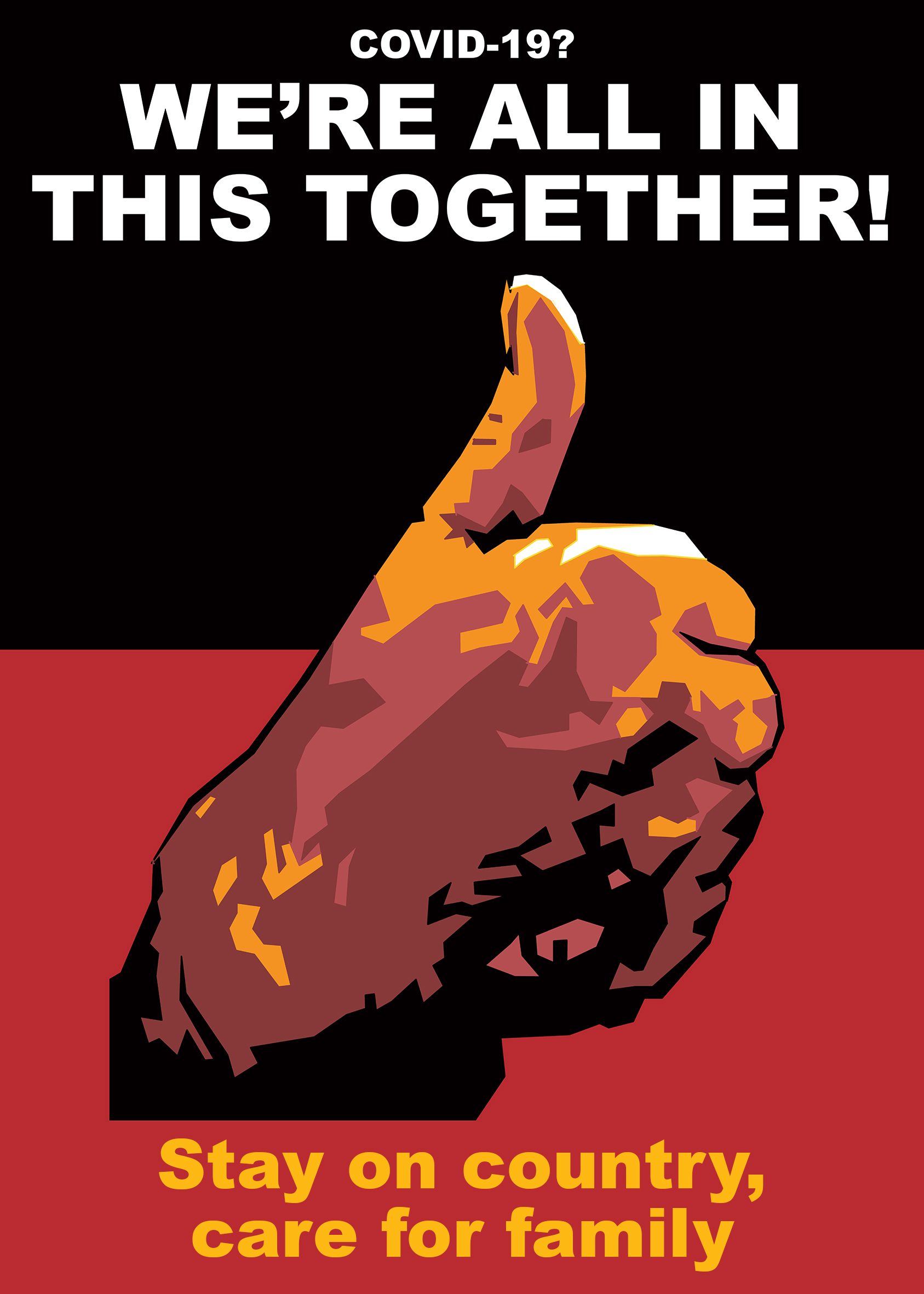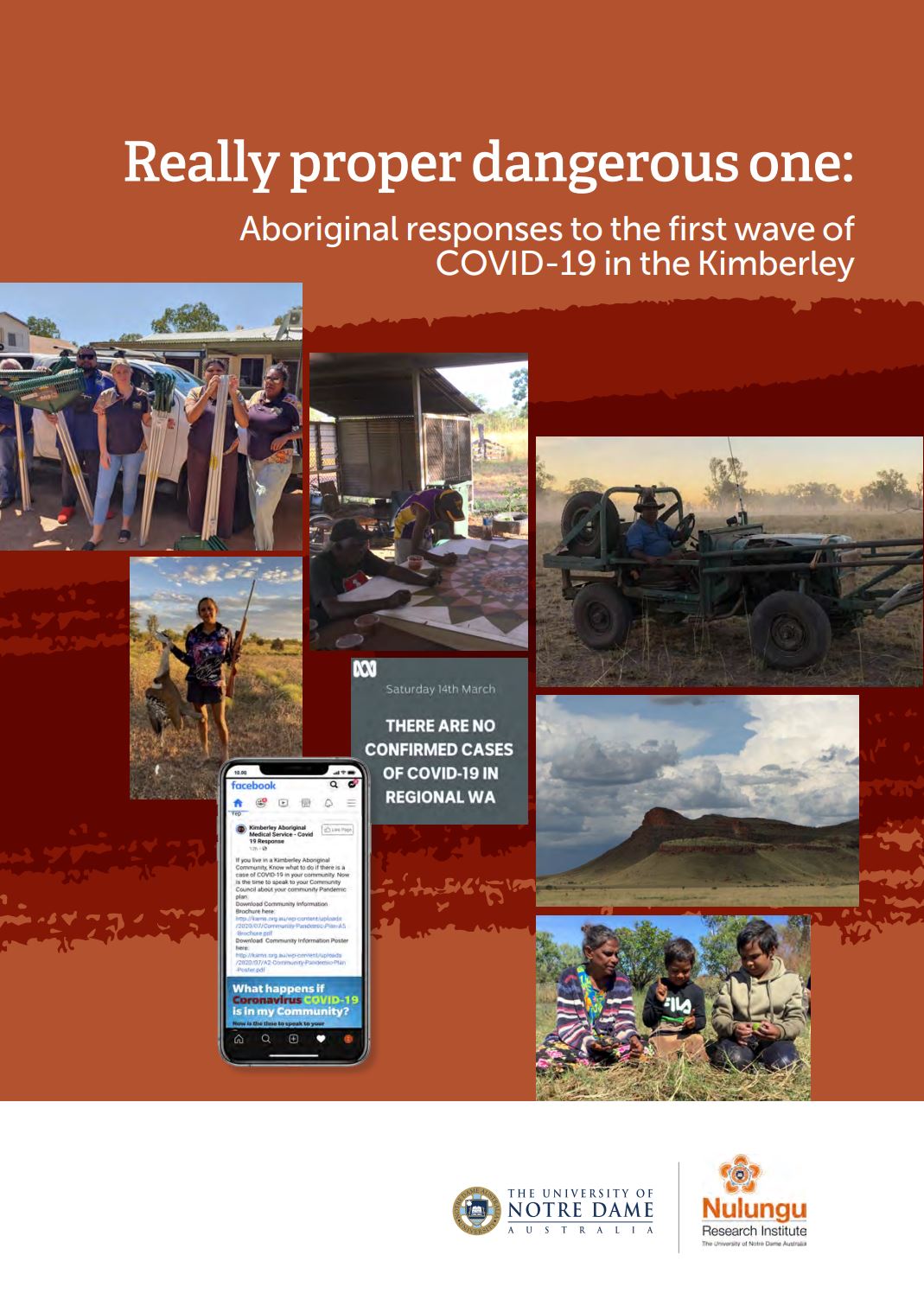How COVID-19 measures have affected Aboriginal people in the Kimberley
Background

Nationwide, Aboriginal and Torres Strait Islander people are recognised as one of the country’s most vulnerable populations due to the high prevalence of chronic disease and other health challenges. As cases of COVID-19 started growing in Australia in February 2020, concerns were raised by many Aboriginal Community Controlled Organisations (ACCOs), non-government organisations, and government departments alike as to the potential public health disaster that would occur if this virus were to make its way to Aboriginal communities. The early days and weeks of COVID-19 saw both the Australian government, and the WA government, devise emergency responses enacted into law over very, very short time periods. This rapid response was made possible via unprecedented levels of political cooperation across party lines, and across and between Australian jurisdictions, which have not been witnessed in living memory.
While much of this enactment of law was necessary to limit the spread of the virus, anecdotally members of the research team were hearing that unclear or inadequate communication resulted in confusion and concern for many Aboriginal people. Additionally, some of the restrictions were less than effective in the context of Aboriginal communities, and families.
This is what the project has aimed to document.
View other projects underway at Notre Dame.
Project Outcomes
Undertaken between September 2020 and January 2022, this research project sought to document the impacts of COVID-19 restrictions and other government measures on Aboriginal people in the Kimberley, and how Aboriginal communities and organisations responded to these measures. The project team focused on seven case studies, and interviewed dozens of people resident in remote communities, as well as staff of Aboriginal organisations and public officials who were involved in the response.
The project was funded via a grant from the Department of Jobs, Tourism, Science and Innovation and the Chief Scientist of WA.
The final report, Really Proper Dangerous One: Aboriginal responses to the first wave of COVID-19 in the Kimberley, was released on February 2, 2022. The report findings outline the crucial role played by Aboriginal organisations in interpreting government directives for local people, but notes that the capacity of such entities at local levels was variable. The findings also highlight an inadequacy of data collected by government agencies around housing, population levels, mobility and infrastructure in Aboriginal communities across the region, which greatly hindered the agility of government responses during the first wave of COVID-19.
The neglected state of remote community infrastructure – housing, roads, communications and basic essential services – is also highlighted.
Project Team
More information
For more information or media inquiries, contact Dr Kathryn Thorburn at the Nulungu Research Institute, Broome.
kathryn.thorburn@nd.edu.au
Ph 0428 525 261


Connect with Notre Dame on Social Media
Australia
Fremantle
Broome
Sydney